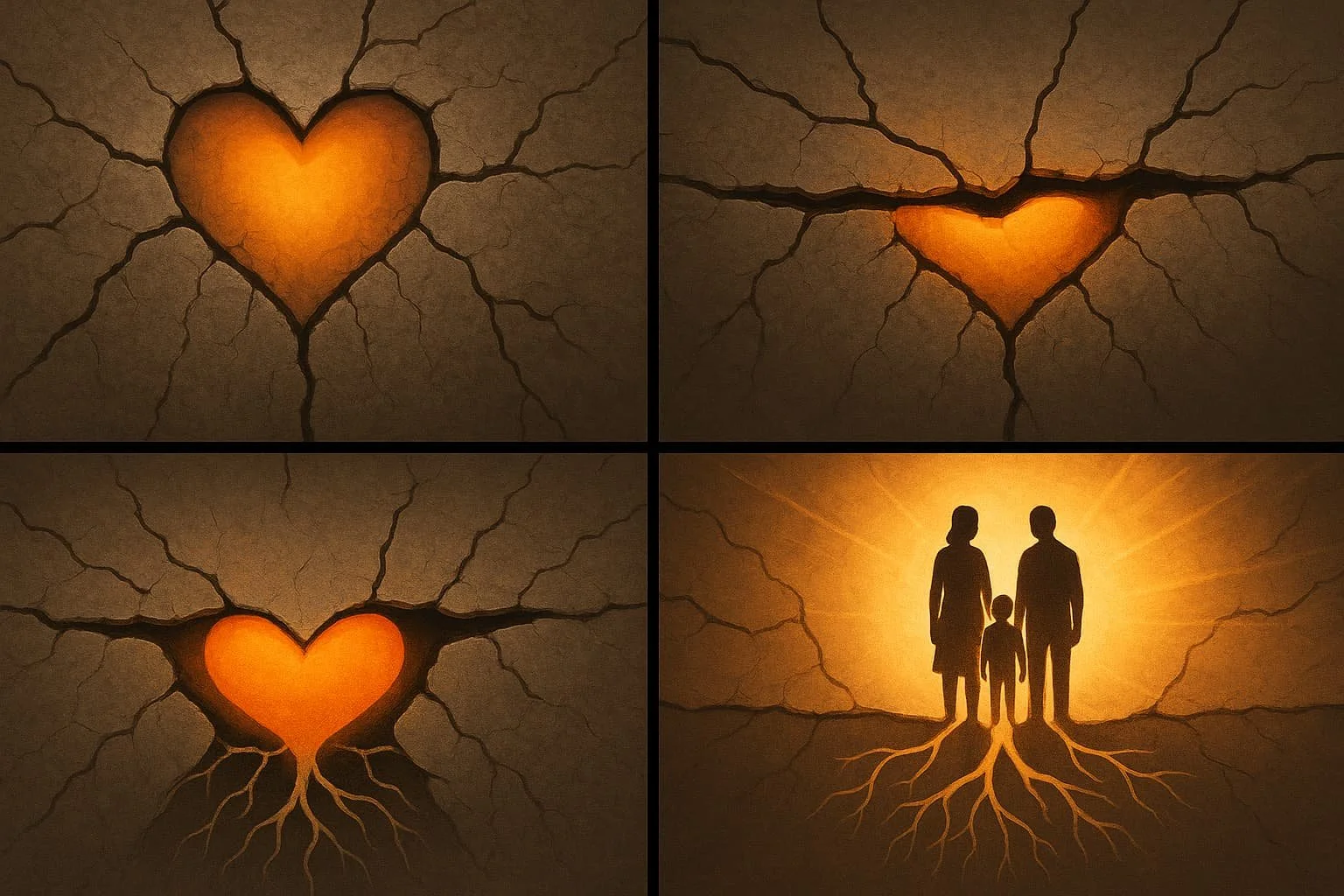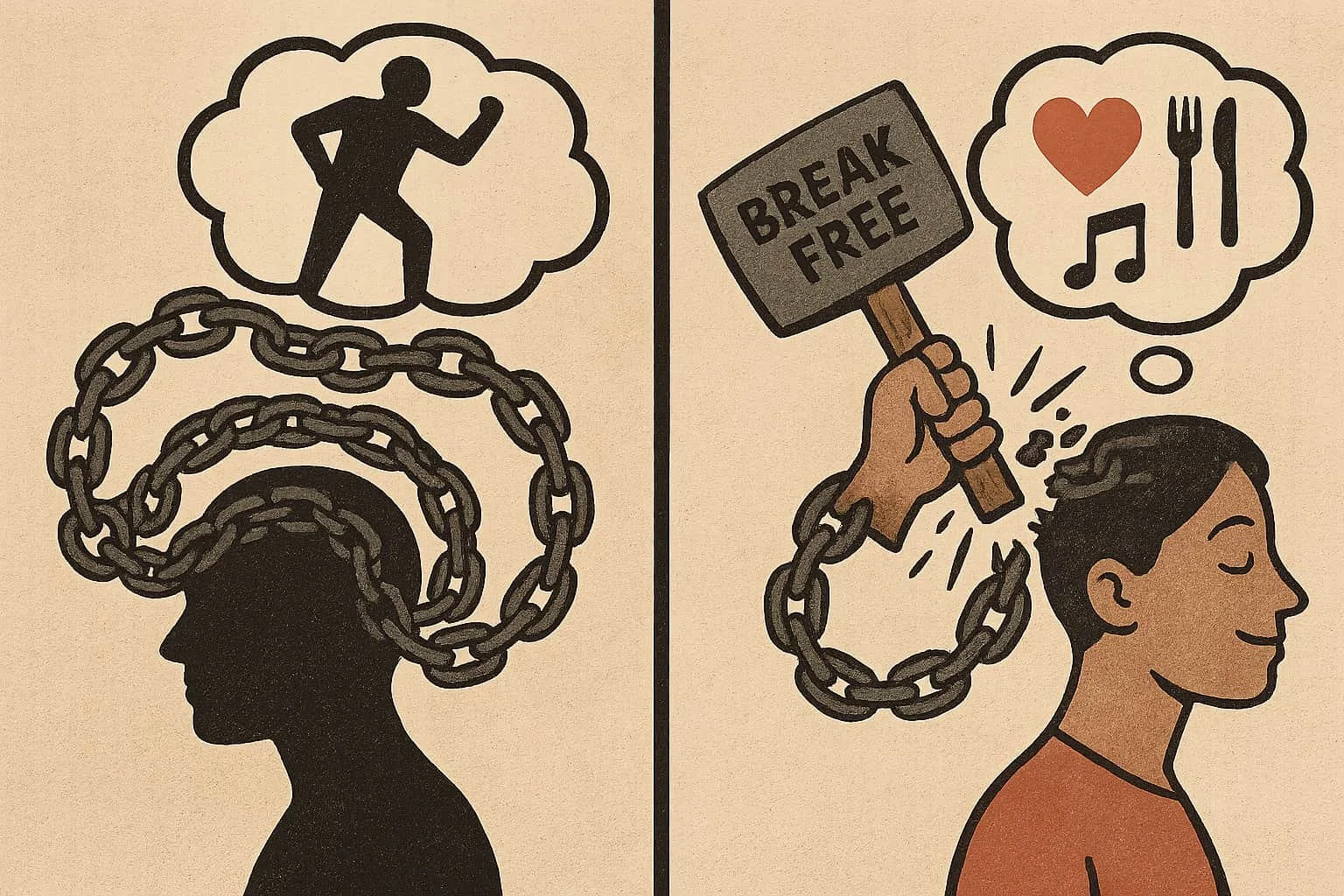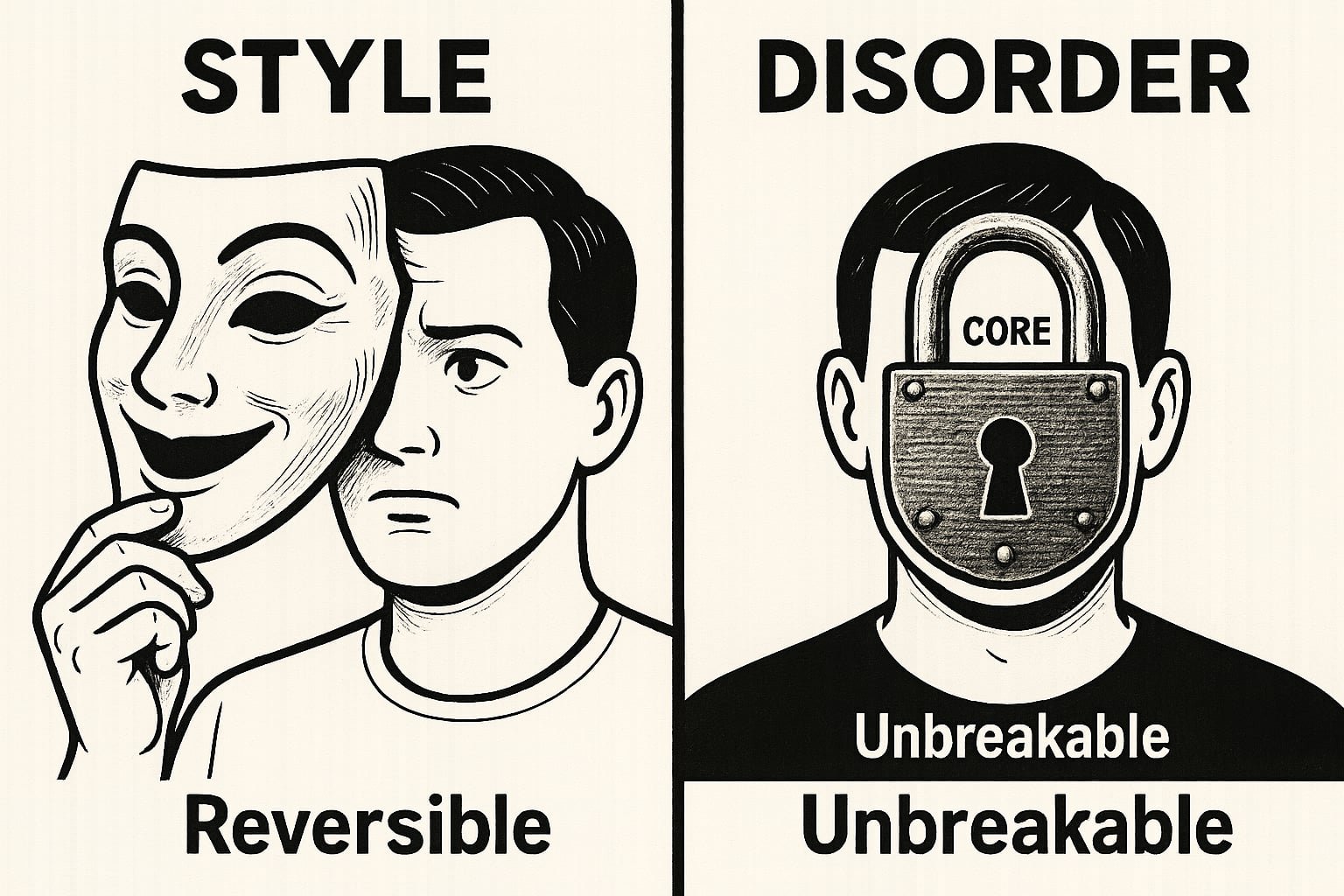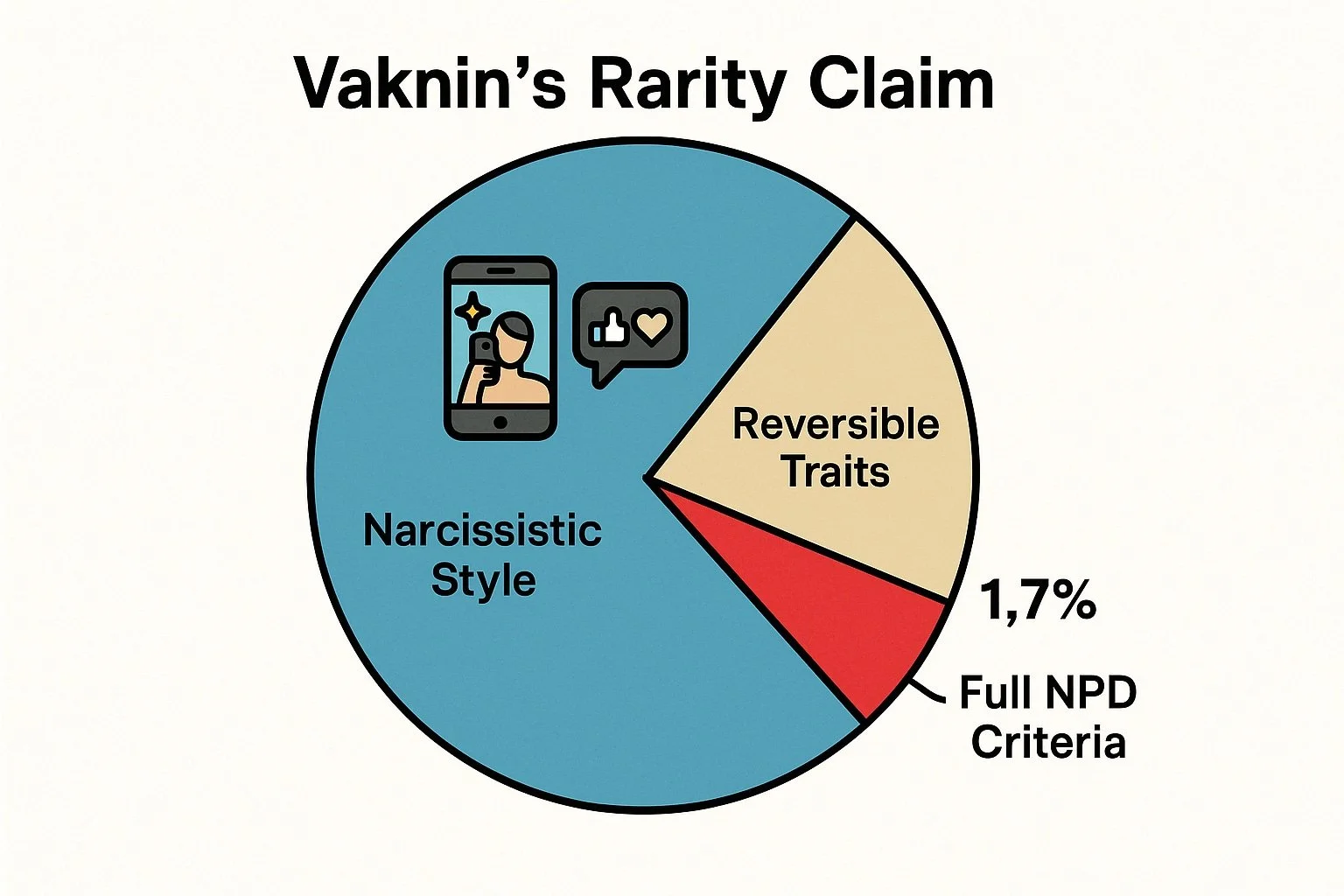Is Your Parent Truly Narcissistic or Just Emotionally Immature?
Have you ever wondered if the challenging behaviors from your parent stem from full-blown narcissism, simple emotional immaturity, or something in between—like a cultural style amplified by modern life? As a therapist who's walked the scapegoat path myself (estranged for truth's sake—stoic humor: it's gritty but liberating), I know how pivotal this question is for healing family wounds. Let's explore through multiple lenses, drawing from my interview with Sam Vaknin and expert reflections, to help you gain clarity and agency.
Introduction: The Question That Hits Home
Hi everyone, this is Blake Anderson, a registered social worker and therapist based in Toronto, Ontario. In this blog post, which supplements my YouTube video on the same topic, I'm diving deeper into the complex question: Is your parent a true narcissist or just emotionally immature? I'll share key insights from my interview with Sam Vaknin, along with reflections from other experts in the field on how they define these concepts. I'll also offer my own thoughts on what Sam shared, helping you determine if your parent is narcissistic, just emotionally immature, exhibiting narcissistic style or traits, or perhaps dealing with another personality disorder altogether.
These are the kinds of questions many of my clients grapple with when they first realize something's just not right in their family interactions or dynamics—often tied to narcissistic abuse, scapegoating roles, or dysfunctional patterns that echo across generations. From an integral perspective (think Ken Wilber's AQAL model, addressing all quadrants like individual psyche and relational systems), it's crucial to apply stoic resilience and existential pragmatism to these explorations, honoring developmental stages from Maslow's survival needs to self-actualization.
Why Your Interpretive Lens Matters in Understanding Narcissism
According to Sam Vaknin, only about 1.7% of the population meets the full criteria for Narcissistic Personality Disorder (NPD). He emphasizes these aren't just diagnosed cases but estimates for those with the condition, and he questions and criticizes the widespread notion on YouTube and TikTok that everyone's family is narcissistic. The question is, who's right? And why does this matter for understanding narcissistic parents, emotional immaturity in families, or personality disorders like NPD?
It matters because your interpretive lens—the way you see the world or the framework you apply to what you think is occurring—is vital in science and methodology. You have to understand which methodological approach or philosophy you're using to make sense of the data. That's why considering multiple lenses is important, and I encourage you to think that it's better to have more than just one. There are different camps: some say it's full-blown narcissism or NPD, others claim it's just emotional immaturity. But all these lenses can hold truth, with their own limits—it's ultimately for you to decide, using them to find the best estimation for your situation.
Obviously, you should rely on qualified clinicians and therapists for diagnoses, but having layperson awareness and grounding in these frameworks is key, especially when access to a therapist or psychiatrist for assessment isn't always immediate. That's not to say you shouldn't pursue professional help—it's just acknowledging real-world limits to clinical intervention. What lens resonates most with your family dynamics? Share your thoughts in the comments below.
Narcissism as a Hermeneutic Tool: Making Sense of Behaviors
I'm not going too deep into philosophy here, but the notion of hermeneutics—often used in studying classics or the Bible—is about how we interpret text or reality; it's a philosophy of interpretation. Narcissism can be helpful as an organizing hermeneutic principle—it allows us to make sense of the world. For example, when trying to understand a politician, applying the label of narcissist suddenly makes their actions and behaviors make sense. Or why you've been betrayed by a best friend—if we apply narcissism, it gives meaning, direction, and goal to the chaos.
We could think of a strict definition of narcissism from the DSM-5 (the mental health manual), where NPD is part of Cluster B personality disorders, requiring specific criteria met for diagnosis—something only a doctor, psychiatrist, or psychologist can officially assess. But there's also emotional immaturity, narcissistic style, or even situational narcissism. I've recently completed a course on narcissism, not just clinically but in society, highlighting its growth among youth like Gen Y and Zoomers, amplified by social media. Sam addresses this too, noting potential evolutionary benefits or strategic elements to adopting a narcissistic style in work or personal life—because, as he says, being narcissistic "pays" in some sense. He points to figures like Trump as a narcissist rewarded at the highest levels, raising questions about our culture.
Narcissism in Culture and Society: Beyond Pathology
If you look at postmodern society, narcissism helps organize and structure it. Modern technologies cater to narcissism—they enhance and reward it, like social media. That's why people think narcissism is everywhere, but social narcissism has nothing to do with pathology. Narcissism as a structural principle isn't the same as the disorder. People who are obnoxious? Not necessarily narcissists—very likely not. Don't go around labeling everyone, especially if you're not qualified to diagnose. But that's another lens: the cultural component rewarding grandiosity, leading to situational narcissism (e.g., after a promotion or fame) similar to situational depression or anxiety from life events.
Key Claims from Sam Vaknin: Stats, Style vs. Disorder, and Emotional Immaturity
In my interview with Sam Vaknin, he made three main claims. First, only 1.6-1.7% of the population has the clinical definition of NPD, based on reliable statistics—you either believe them or you don't; no middle ground. We use powerful population and cohort statistics called sampling to know how many end up in clinical settings with psychosis, narcissism, borderline personality disorder, and so on. Statistical tools remove bias, render results significant, and adjust for age, sex, socioeconomic background—we've been doing this for over a hundred years, and the figures are reliable. The fact that narcissists don't attend therapy applies to all mental health issues, so if you challenge NPD stats, challenge them all.
Second, he says there's no link to emotional immaturity; no evidence, and it's unwise to correlate them. This is interesting because experts like Lindsay Gibson (author of Adult Children of Emotionally Immature Parents) often avoid "narcissism" but focus on emotional immaturity, acknowledging NPD exists but emphasizing maturity issues. Yet Sam counters: Emotional immaturity is just one item on the narcissist's problem list—pathological narcissism is an exceedingly severe mental illness. He cites Otto Kernberg, a father of the field, who claimed narcissism and borderline are flip sides of the same coin, a defense against borderline organization, on the edge between neurosis and psychosis—pseudo-psychotic, almost like attenuated schizophrenia. It's not just Peter Pan syndrome or refusing adult responsibilities; we're talking people devoid of a functional self, unable to distinguish external from internal objects—they convert you into an internal extension instantly.
My sense is Sam is rooted in depth psychology, analytical psychology, and object relations theory, while Lindsay Gibson's work might stem from a different philosophy—it's vital to consider foundations regardless of the expert. Contrast this with Dr. Ramani Durvasula (a top popularizer in the field), who estimates 10-15% show significant narcissistic traits that can damage relationships. If that's true, it's something to think about for your own family or romantic dynamics—how might these lenses apply to your scapegoat experiences or dysfunctional patterns?
Engaging with the Content: Your Turn
To engage further: Which lens—NPD, emotional immaturity, narcissistic style—best fits your parent or family situation? How has social media amplified these traits in your life? Share below; let's build a community of truthful reflection.
For practical steps forward, check out my 45-page Ultimate Healing Toolkit PDF, packed with tools, strategies, and worksheets on productivity, Gottman theory practices, scapegoating, family roles, and constellations—designed to help you move forward on your journey. Sign up for my newsletter to get it free.
If you're ready to deepen your recovery from narcissistic abuse or scapegoating, explore my [Scapegoat & Narcissistic Abuse Recovery Course bundled with Design Your Personal Manifesto][2] for comprehensive healing and purpose-building. [2]: /scapegoat-recovery
Key Takeaways
- Multiple Lenses for Clarity: Hold at least two frames (e.g., NPD vs. emotional immaturity) to avoid confirmation bias and gain a balanced view of family dynamics.
- Prevalence and Pathology: True NPD affects only 1.6-1.7% per stats, but traits or styles (subclinical) may be more common and culturally rewarded—seek professional assessment.
- Cultural Influences: Social media and society amplify narcissistic behaviors, but they're not always pathological; distinguish style from severe disorder like Kernberg's pseudo-psychotic view.
- Expert Contrasts: Vaknin stresses no link to immaturity; Gibson focuses on it; Dr. Ramani highlights damaging traits in 10-15%—consider foundations like object relations vs. maturity models.
- Next Steps for Healing: Use hermeneutics to interpret your reality, pursue stoic integration, and apply tools for developmental growth—start with a consult or my toolkit.
Thank you for reading—please like, share, and subscribe to my YouTube for more on narcissism, family dynamics, and recovery.




